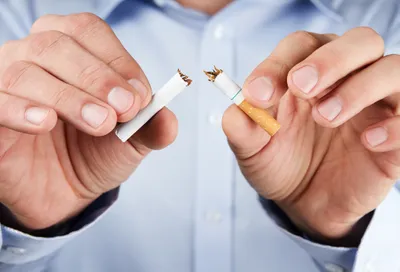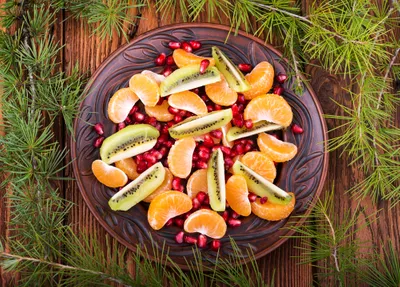We all tell ourselves that in the coming year we’re going to completely stop eating junk food, workout 4-days a week at the gym, and walk to work everyday even when it’s 8-miles away. However, making health vows that are too big may be the very thing that ruins your efforts.
Experts note that around half of us make New Year’s Resolutions, and only 1-half of that group makes it past mid-January. So, instead of deciding to lose 50-pounds by March, let’s take a look at six realistic goals that can improve your well-being and that you can build on…
1. Cut Down on Smoking
If you’re a pack-a-day smoker, it’s probably a lot to ask to cut out smoking completely by February. Cold turkey may work for some, but reducing cigarettes gradually may make it more manageable for you (without the associated rage or grumpiness).
It may help to recruit a smoker friend to quit with you, and compare your progress and provide support. Try to make a note of how many smokes you actually burn through in a day, and then you at least have a reference to work with. The Illinois Tobacco Quitline suggests reducing that number by 1-cigarette every 2-days. This gradual decrease can also help anti-smoking medications do their job more easily.
2. Take a Daily Walk
You don’t have to sign up for an expensive gym membership to get some exercise, when you have 2-feet and endless pavement outside. If you’re finding it difficult to get out of your seat at the office, set aside 15 to 20-minutes of your lunch break to step outside.
Your first couple of tries might be a loop around the parking lot and back, but you may find the fresh air lures you for longer the next times. Taking a brisk walk can also help make you more alert and cut down on any stress you’ve dealt with (or will deal with) in the second half of your day. It probably won’t help you lose any weight, but it will help you feel better and motivate you to add more minutes to the walk.
3. Reduce Junk Food Intake
No one said you can’t have the occasional bowl of ice cream or greasy burger, but having them every day might start to add up. If you’re biting your fingernails trying to get through a food craving, then the key is to focus on how to deal with the cravings.
Conveniently, WikiHow has a handy article entitled, “How to Cut Down on Junk Food”. The source suggests keeping a food journal to record what you’re eating, and what the triggers may have been. Also consider if it’s just a lack of time to grab something healthier (and then fix that). Try distracting yourself with a walk or a good book instead of fixating on the junk food you’re not eating, it adds.
4. Be More Mindful
We’re increasingly becoming more and more glued to our screens as a society, and always being distracted by the next notification rather than noticing what’s around us. Being mindful just means you’re aware of the present, and can be in it to enjoy the moment.
You don’t have to become a Buddhist Monk to practice mindfulness meditation. PsychCentral.com breaks it down into 7-ways to achieve a mindful mindset, including paying more attention to mundane tasks like brushing your teeth. You can even let your mind wander: it’s natural to daydream, and mindfulness can “gently” bring you back to center, it adds.
5. Worry Less
Yes, this can be easier said than done, but a big part of worrying is coming up with worst-case scenarios in our head that probably won’t happen, which is another good reason to be mindful (see previous slide).
Worrying can be a necessary thing to avoid getting you into a bad situation, but overdoing it will prevent you from thinking it through clearly (it can also affect your overall health). The Huffington Post compiled a list of 10-ways to reduce worry, from writing about your anxieties to managing workload to setting personal priorities.
6. Celebrate Successes
Instead of changing a bad habit, why not start acknowledging the things you’re doing right? We’re so programmed to think we’re falling short that we forget to give ourselves a pat on the back once in a while when we’ve achieved something.
The Huffington Post suggests in a blog to make a list of your successes from the past year. They don’t have to huge things like “won a Nobel Peace Prize,” they can be smaller victories like turning in a project at work that was well-received or successfully potty-training your toddler. Think about how you’ve not only enriched your own life, but the life of others. This list should help propel you to further successes in the New Year. Cheers!









